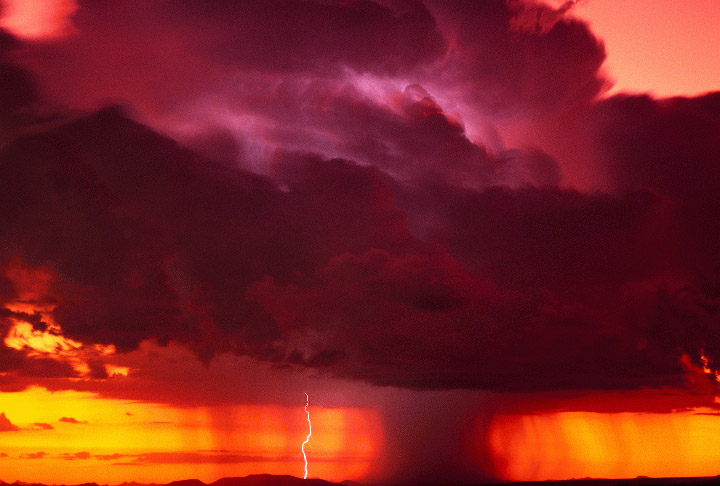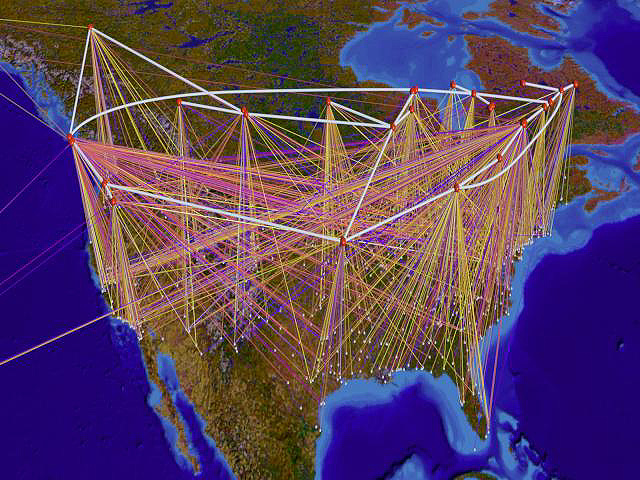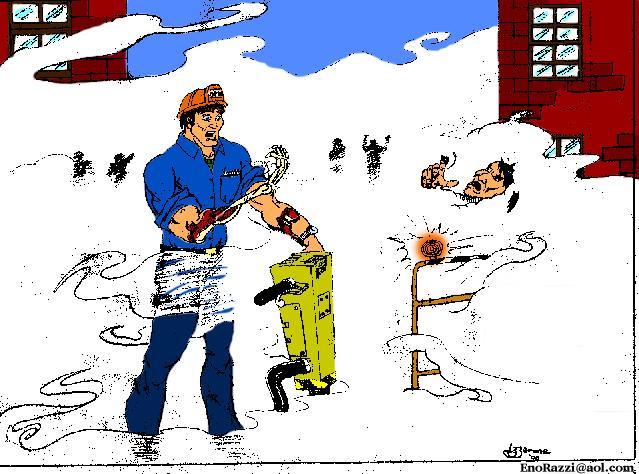
Live by the sword...
In the past, a war cloud may have been defined as a large cloud that clung close to the earth. It was composed of dust kicked up under foot, and smoke from torches and implements of burning, perhaps even a massive bonfire in a nearby camp sight. The the stars would seem to dim, next to the orange light from camp fires reflecting off the mass of smoke in the night sky. Ancient citizens must have viewed such clouds with mortal fear and anticipation of death.

The Unjammable radio...
The military, concerned with it's ability to communicate in times of war sanctioned a project called ARPANET, the early successor to the Internet. The design of the Internet allows information to be routed through many different paths. The destruction of a key venue or information conduit, like say the nucular decimation of Washington DC, would automatically cause information transfer from Georgia to NY to go a different route. Sometimes the Web is also known as the big cloud, well because it's a big unpredictable mess of redundant routes. In my opinion it defiantly qualifies as a Warcloud.

Harder than rock, lighter than air...
The prosperity of the computer age is dependent on continuing miniaturization. Gordon Moore, the founder of Intel coined a rule in 1965, that every 18-24 months that computer processors would double in speed or half in price depending on how you look at it. Moore's law has held up for 35 years and is considered the yardstick by businessman and engineer alike. Making faster processors hinges on shrinking the size of circuits to lower heat output. The transistor becomes the size of single molecule between the year 2015 and 2020.
What does this mean? The infrastructure for building entire robotic machines significantly smaller than a human cell, or on the nano scale, will be in place. Made of perfect diamond, these sub-microscopic machines can travel through the blood stream and destroy disease, solve complex environmental dilemmas, make potatoes from dirt, and build Ferraris out of iron ore and drums of oil. The most frightening scenario for the world, is that the divide between the haves and the have nots continue to grow and self proclaimed world rulers emerge. Regardless of whether this small group of people is military or scientific, corporate or political as sole providers/controllers of nanotech, their power will be absolute. Nanotech can free us from most physical need and labor, but it can be used as a hideous and absolute weapon of war.
Self replicating nanites could be made as light as air. A simple instruction (programmed by and evil human) could create potatoes from humans instead of dirt. An airborne cloud of these weapons could disintegrate the population of a city in the time it takes to blow across it.

Copyright, and patents give a small group of people (usually not inventors, or artists) to much power. Reverse engineering needs to be protected, and patents need to specific and limited in scope. The devastation that nanotechnologies can inflict will be complete, if our control over the engineering that relates to and effects our biology directly become so encumbered in a legal mire that community driven public research grinds to a halt. We should demand more, not less control over the computing and engineering technologies that effect more and more of our day to day tasks. If arguing over royalties and "IP" rights, how can we respond to prevent loss of life when the "invention" of the first malicious nanite virus comes our way. "Intellectual Property" seems silly when the downside cost is measured in bodies and not dollars.